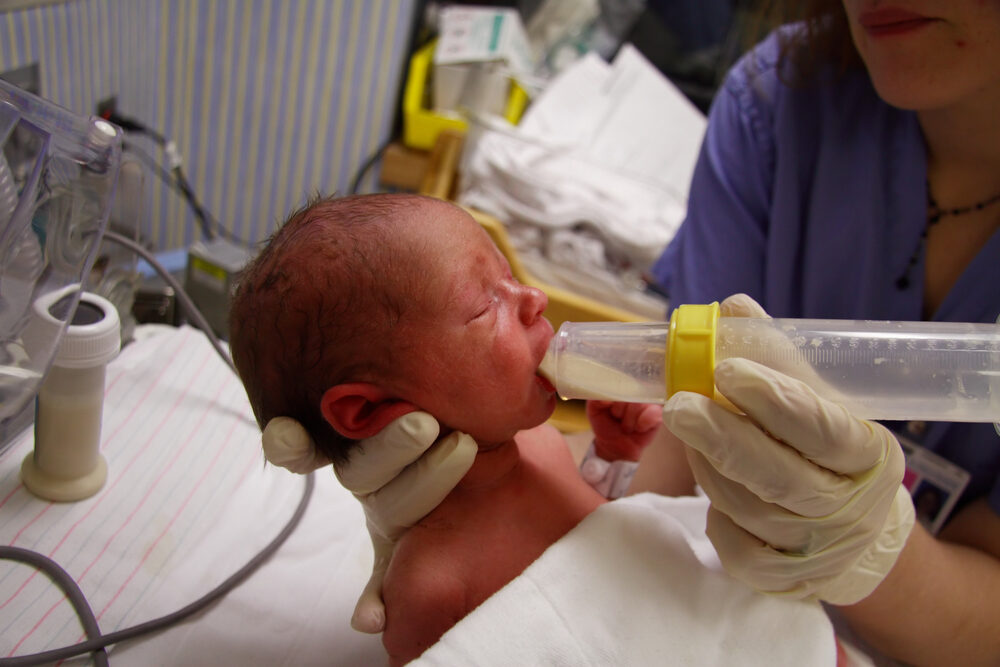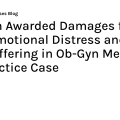Being a parent nowadays is more challenging than it has been in the past. From how to parent, infant product recalls, pandemic impacts, and formula versus breastfeeding, parents’ knowledge and patience are stretched to the limits.
For those who rely on infant formula to feed their infants, baby formula recalls by the U.S. Food and Drug Administration (FDA) have added additional stress and expenses. Some recalls have been for bacteria contamination – which put lives at risk, while others were for infant formula that contained dangerously high levels of Vitamin D.
In addition, some baby formula manufacturers have gained attention over the last few years for products linked to an increased risk of infants developing necrotizing enterocolitis (NEC). Countless NEC baby formula lawsuits have been filed, alleging that the manufacturers knew of the risks of NEC and failed to warn parents and medical professionals.
Necrotizing enterocolitis is a gastrointestinal condition that mainly affects preterm infants and can be fatal. Studies have shown a higher risk of NEC is associated with feeding infants cow’s milk-based formulas. Due to the increased attention, lawsuits, formula recalls and the death of premature infants from NEC, a federal working group has convened to determine what research gaps exist related to NEC and preterm infant nutrition.
The U.S. Secretary of the Department of Health and Human Services directed the Eunice Kennedy Shriver National Institute of Child Health and Human Development (NICHD) to create a Necrotizing Enterocolitis (NEC) in Preterm Infants working group to prepare and submit a report detailing the scientific findings related to NEC and nutritional support for preterm infants. The working group members included representatives of national pediatric organizations and advocacy groups, laboratory scientists, clinical trial specialists, and neonatologists.
NEC Working Group Recommendations
Released on September 16, the NEC working group report included 17 recommendations. The primary recommendation is to expand research into preventing premature birth. Research evaluated as part of this working group has determined that those born before 34 weeks gestation have a higher risk of developing NEC. Each year, more than 400,000 premature births occur in the U.S., or around 10 percent of all births. The report highlighted that the best method to prevent an NEC diagnosis in premature infants is to prevent premature birth.
Several risk factors increase the potential of contracting NEC that are associated with premature birth such as the mother having preeclampsia and hypertension, or the premature infant being small for their gestational age with a very low birth weight.
While some factors contribute to an increased risk of developing NEC, there are also protective factors that can reduce it. One way to help decrease the risk of NEC is feeding premature infants a breastmilk diet. Additionally, using a human milk-based fortifier in an infant’s diet may reduce the potential risk of NEC compared to using a cow-based fortifier. Human milk oligosaccharides (HMO) found in human and donated breast milk can also be protective against NEC. HMOs encourage beneficial microorganisms and support premature intestines function which is similar to what a premature infant would receive from breast milk.
A priority of the NEC working group is to assess and evaluate the research available about NEC. They are working to determine a standard definition of NEC and its severity. This will lead to improved studies, potential clinical trials, and treatment options. They also added a recommendation that research into NEC should include the perspective of families that have experienced NEC.
The NEC working group also highlighted the necessity to track, report, and document NEC cases. They’ve recommended expanding the tracking outcomes for cases of the patients surviving and those with fatal outcomes and that additional tracking be done by gestational age. Additional research should be conducted into how NEC develops to determine treatment options and clinical trials.
A consistent recommendation from the NEC working group’s report is that further investigation is needed. More NEC research and studies can help save the lives of premature infants.
Why NEC Baby Formula Lawsuits are Being Filed
The NEC working group’s recommendations came after a jury ordered Abbott Nutrition to pay $495 million in damages from one NEC baby formula lawsuit. The lawsuits, which many have been consolidated into multidistrict litigation (MDL), allege specialty formula manufacturers Abbott Nutrition and Mead Johnson knew the risks of cow’s milk-based formula for premature infants and didn’t warn parents or doctors. Parents are suing baby formula companies for negligent misrepresentation, selling a dangerous product, failing to warn about health risks, and wrongful death.
Infants who survive an NEC diagnosis may experience lifelong consequences with expensive medical treatment, surgeries, and neurodevelopmental challenges. Parents and caregivers of infants who have suffered NEC after consuming a cow’s milk-based baby formula should consider contacting an NEC baby formula lawyer to determine possible legal options. A lawsuit can provide essential compensation for future needs or wrongful death and raise awareness while holding manufacturers responsible.
With one baby dying each day in the U.S. from NEC, more research, and a thorough understanding of NEC and its treatment are required. For families and medical professionals, having thorough NEC knowledge and treatment available at their fingertips can save lives.
The recommendations of the NEC working group will hopefully lead the fight against NEC.




